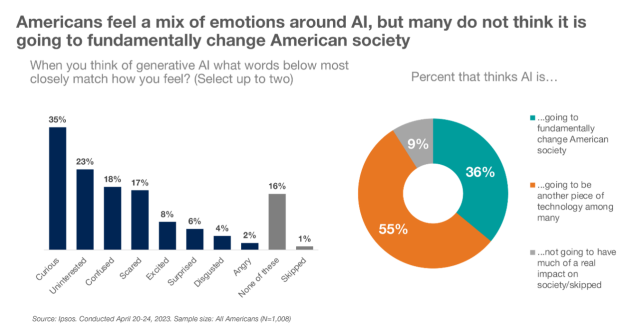I recently convened at the 2024 Digital Trust Summit, where seasoned leaders and C-suite executives gathered to explore strategies for cultivating trustworthy digital cultures, it’s evident that fostering trust within organizations is paramount, particularly in the dynamic landscape of today’s digital era.
Trust is fundamental to building great workplace cultures and it drives employee well-being and organizational success. According to a Harvard Business Review study, employees at high-trust companies report staggering benefits, including 74 percent less stress, 106 percent more energy at work, 50 percent higher productivity, 13 percent fewer sick days, 76 percent more engagement, 29 percent more satisfaction with their lives, and 40 percent less burnout compared to those at low-trust companies.
Yet, a recent Ipsos poll unveils a disconcerting reality: 75 percent of Americans harbor distrust toward companies engaged in developing AI technologies, doubting their commitment to prioritize the public’s best interests. Surprisingly, 53 percent of Americans still believe that companies bear the responsibility for developing AI in a manner that minimizes harm.

Source: Ipsos
This gathering encouraged invaluable insights and actionable recommendations for building a culture of trust in an AI environment. Some key imperatives were distilled from discussions, each essential for nurturing trustworthy AI ecosystems.
1. Drive Transparency and Explainability: Transparency is foundational for trust in AI. As leaders, we must take proactive steps to ensure that AI systems are transparent and explainable, enabling stakeholders to understand how decisions are made. This necessitates demystifying complex algorithms and providing clear explanations of AI processes and outcomes. To achieve transparency:
- Prioritize the development of explainable AI models that provide insights into the reasoning behind AI-driven decisions.
- Utilize internal communication channels such as newsletters, intranet portals, and company-wide emails to disseminate information about ethical AI practices and initiatives.
- Regularly share updates, resources, and success stories related to ethical AI to keep employees informed and engaged.
- Encourage employees to ask questions and provide feedback, fostering a sense of ownership and accountability for ethical AI within the organization.
- Establish clear policies and procedures for data governance and AI ethics, ensuring transparency is ingrained into the company culture.
- Bring in cognitive behaviorists to mitigate bias and ensure the use of data with integrity, enhancing transparency and trustworthiness.
